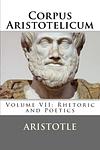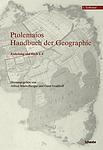The Greatest Greek "Science" Books of All Time
Click to learn how this list is calculated.
This list represents a comprehensive and trusted collection of the greatest books. Developed through a specialized algorithm, it brings together 300 'best of' book lists to form a definitive guide to the world's most acclaimed books. For those interested in how these books are chosen, additional details can be found on the rankings page.
Genres
The category of "Science" in books encompasses a wide range of topics related to the natural world, including physics, chemistry, biology, astronomy, and more. These books may explore scientific theories, discoveries, and advancements, as well as the history and philosophy of science. They may also cover practical applications of science, such as technology and medicine. Overall, the Science category offers readers a deeper understanding of the world around them and the scientific principles that govern it.
Countries
Date Range
Reading Statistics
Click the button below to see how many of these books you've read!
Download
If you're interested in downloading this list as a CSV file for use in a spreadsheet application, you can easily do so by clicking the button below. Please note that to ensure a manageable file size and faster download, the CSV will include details for only the first 500 books.
Download-
1. Corpus Aristotelicum by Aristotle
The "Corpus Aristotelicum" is a collection of texts by an ancient Greek philosopher, providing an extensive exploration of numerous fields of knowledge, such as metaphysics, ethics, logic, politics, biology, and poetry. These works have been instrumental in shaping Western philosophy and have had a profound influence on a wide range of subjects, including science, theology, and politics. The collection is known for its systematic and logical approach, and for its groundbreaking ideas that continue to stimulate intellectual discourse.
-
2. Geography by Ptolemy
"Geography" is a seminal work in the field of geography and cartography, written by a renowned ancient Greek scholar. The book provides comprehensive details about the world as known during the Roman Empire. It contains a wealth of information about various countries, cities, landmarks, and geographical features, along with instructions on how to create maps. The author also introduces the concept of longitude and latitude, making this work a significant contribution to the field of geography.
-
3. Euclid's Elements by Euclid
This book is a comprehensive collection of definitions, postulates, propositions, and mathematical proofs written by an ancient Greek mathematician. It is considered one of the most influential works in the history of mathematics, serving as the main textbook for teaching mathematics, especially geometry, from the time of its publication until the late 19th or early 20th century. The book covers topics such as plane geometry, proportion in general, the properties of numbers, incommensurable magnitudes, and solid geometry.
-
4. The Works of Archimedes by Archimedes
This book is a compilation of the surviving works of one of the greatest mathematicians and inventors of all time. It includes his theories and discoveries in fields such as geometry, calculus, physics, and engineering. Readers will find his famous treatises on the lever, the sphere and the cylinder, floating bodies, and the measurement of a circle, among others. The book also contains his explanations of the principles of mechanics, the concept of equilibrium, and the center of gravity of plane figures.
-
5. Almagest by Ptolemy
"Almagest" is a seminal work on astronomy and mathematics, written in the 2nd century. The book presents a comprehensive system of the world, including a detailed account of the fixed stars and the motions of the planets. It also includes a mathematical toolkit that was essential for understanding the heavens in its time, such as a catalogue of stars, the lengths of the tropical year and the lunar month, and the theory of the Sun, Moon, and planets. The book's geocentric model, where the Earth is at the center of the universe, was widely accepted until the Copernican Revolution.
Reading Statistics
Click the button below to see how many of these books you've read!
Download
If you're interested in downloading this list as a CSV file for use in a spreadsheet application, you can easily do so by clicking the button below. Please note that to ensure a manageable file size and faster download, the CSV will include details for only the first 500 books.
Download



